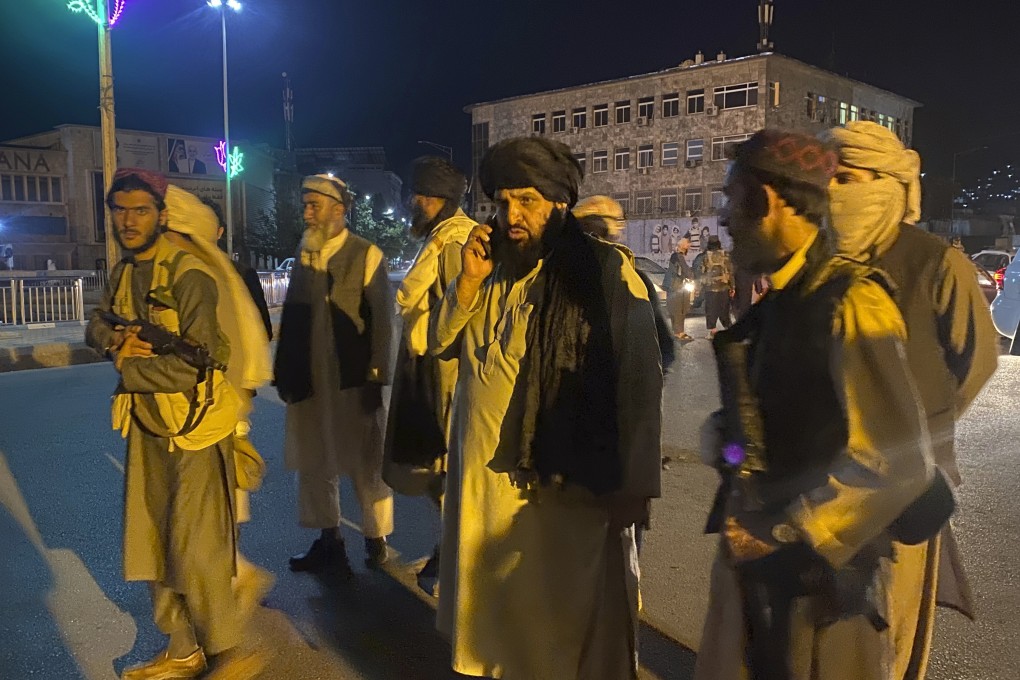Risks and opportunities for China in Taliban’s return to power in Afghanistan
- As the world criticises chaotic US withdrawal, Beijing has strengthened its border with the country and met Taliban leaders
- The main concerns are that instability could spill into the Xinjiang region and hurt belt and road investments

Chinese foreign ministry spokeswoman Hua Chunying said on Monday that China “respects the wishes and choices of the Afghan people”, and hoped the Taliban’s declarations that it would transition the country under an “open, inclusive Islamic government” and ensure the safety of Afghan citizens and foreign missions would be carried out accordingly.

04:07
Taliban takes control of Afghan capital Kabul as President Ghani flees country
But the dramatic collapse of the Afghan government comes with devastating losses for the US – increasingly a strategic rival for China – as its nearly 20-year war ends as it began with Taliban rule and the sight of helicopters evacuating its diplomats in an unmistakable parallel with its withdrawal from Saigon in 1975.
When asked if Beijing would recognise the Taliban as the legitimate leaders of Afghanistan, Hua did not answer directly, saying China has “maintained contact and communication with the Taliban” and that it respected the country’s sovereignty and its various domestic parties.